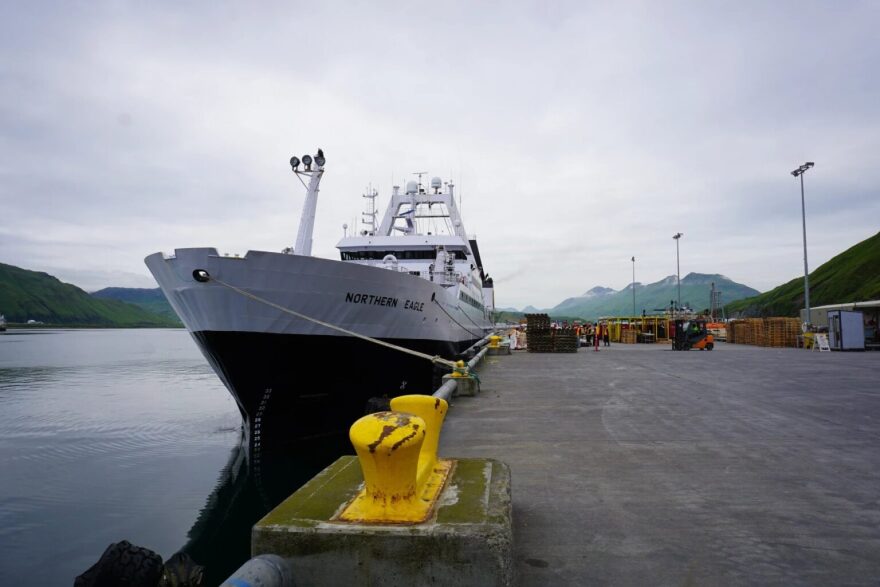Five environmental and tribal organizations have signed their support onto a lawsuit against federal fisheries managers. The suit alleges that the National Marine Fisheries Service has violated environmental policies by using outdated data to guide the way it regulates the trawling industry in the Bering Sea and Aleutian Chain fisheries. This includes the Alaska pollock fishery, responsible for the vast majority of salmon bycatch in the region.
“There's so many factors as to why salmon declines are where they're at right now in our rivers,” said Laureli Ivanoff, the executive director of Native Peoples Action, one of the supporting organizations. “We know it's not just the pollock industry. However, if the analysis and if the environmental impact statement that they use for analysis and for decision-making was updated, there would be a more complete picture of what's happening in the ocean to base their decisions on.”
The lawsuit calls into question the use of environmental impact statements dating back to 2004 and 2007. It was originally brought in April by the Association of Village Council Presidents (AVCP) and Tanana Chiefs Conference (TCC), tribal non-profit organizations that together represent the vast majority of communities hit hardest by salmon crashes in Western Alaska. The groups are being represented by the national environmentalist law organization Earthjustice.
In early December 2023, five Alaska Native and fisheries conservation organizations: Native Peoples Action, Ocean Conservancy, the Kuskokwim River Inter-Tribal Fish Commission, SalmonState, and the Alaska Marine Conservation Council, filed what is known as an amicus brief on the same side as the original two plaintiffs. It is a way for parties with a stake in the outcome of a lawsuit to offer additional information that courts may consider before ruling.
Becca Robbins Gisclair is the Arctic programs director for Ocean Conservancy, another supporting organization. She said that the North Pacific Fishery Management Council, the body that sets federal fishery management standards, needs to make a change to protect Western Alaska salmon runs.
“Literally as we speak, the council [on Dec. 7] is about to make the same decisions again about setting catch limits for billions of pounds of groundfish to be removed from the Bering Sea,” Gisclair said, speaking of the meeting of the North Pacific Fishery Management Council meeting that took place from Dec. 4 to Dec. 12. “And they’re doing it again without fully considering the impacts on the ecosystem, on subsistence fishing, on Indigenous ways of life.”
The five organizations filing an amicus brief also join the municipal government of Bethel in supporting the suit against federal fisheries managers. Earlier this year, the City of Bethel joined the lawsuit as an intervenor, essentially a latecomer plaintiff. The city cited the cultural, nutritional, and economic importance of salmon to Bethel residents in their move to join the lawsuit.
On the other side of the suit, the At-Sea Processors Association and United Catcher Boats have filed as intervenors in support of the National Marine Fisheries Service and maintaining the status quo. Both are trade associations representing the trawling industry.
United Catcher Boats did not respond to requests for comment. Both the At-Sea Processors Association and the National Marine Fisheries Service said that they are unable to comment on matters of ongoing litigation.




